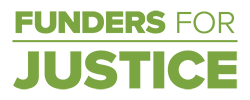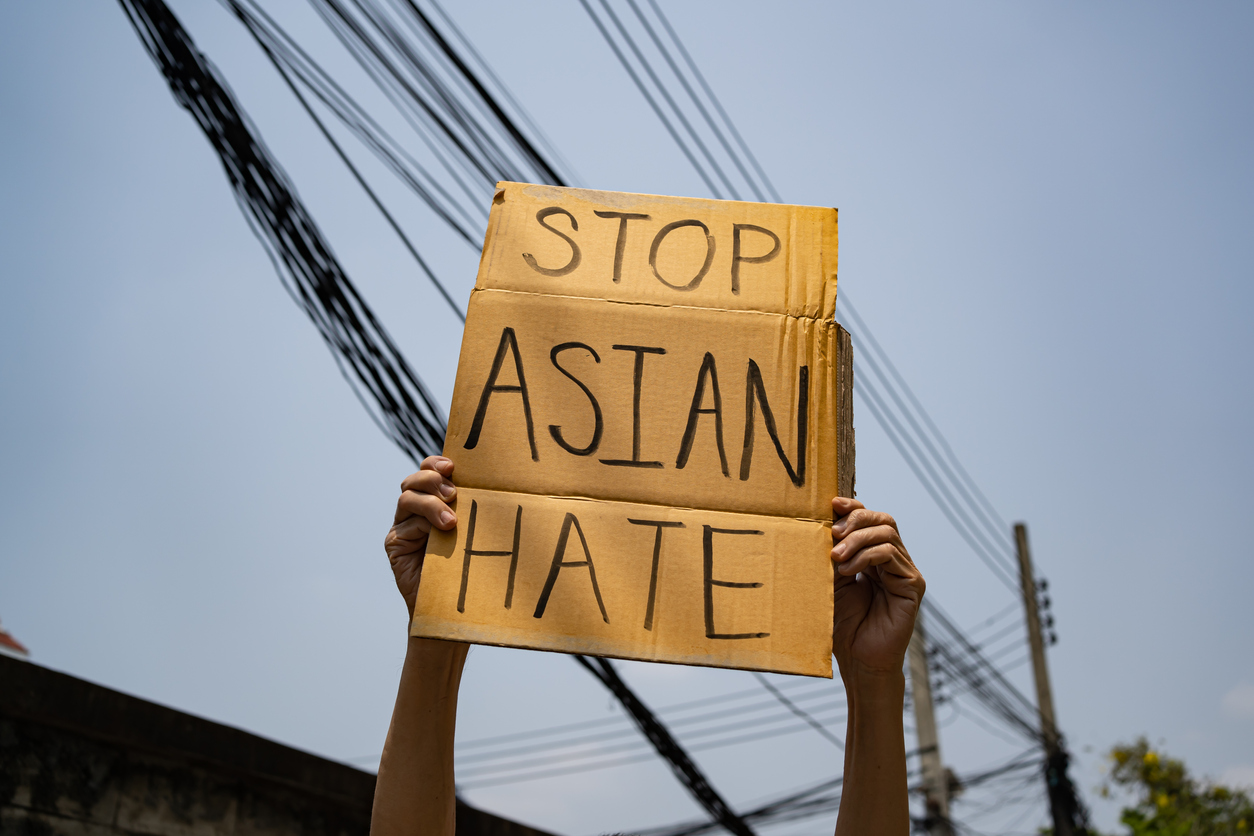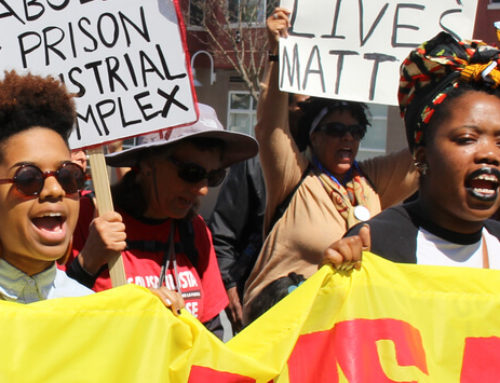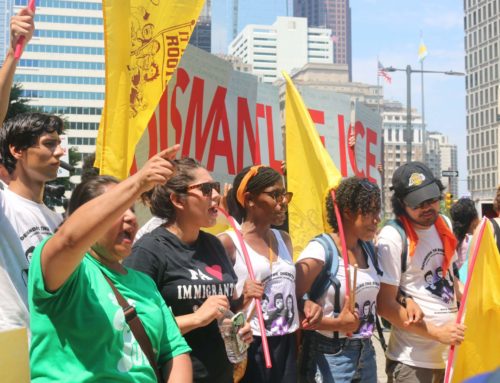Dear FFJ Community,
Our staff and leadership continue to be deeply saddened by the recent murders of eight people in the metro Atlanta area on March 16th. For those who knew them, they were parents, partners, aunts, uncles, siblings, neighbors, coworkers, and friends. Amidst ongoing waves of death and loss, we grieve with and for their families and communities.
In alignment with a request from victims’ families shared through Asian Americans Advancing Justice – Atlanta, we are not sharing the names of those murdered out of respect for their privacy. So often, racialized and gendered violence take consent, control, and decision-making from people in life, and we are mindful about how we honor those same values in death, even when it may be uncomfortable or frustrating for us as we mourn. We know that the eight individuals’ names have been published widely, and are available for those who want to search for them. We also acknowledge this moment as an opportunity to hold two truths: naming those murdered through interpersonal and state violence is a powerful tool against erasure (a lesson we have learned through campaigns such as #SayHerName to uplift state violence against Black women) and not naming or having the names of anyone who has been killed does not mean they are any less worthy of the grief, mobilization, and action that they deserve simply from having lived.
This being said, we do not believe that it is an unintentional coincidence that all but one of those murdered were women, and of the seven women murdered that six were of Asian descent. Elected officials’ and media personalities’ use of coronavirus pandemic-related sinophobic (prejudice, discrimination, and racism aimed specifically at China and/or Chinese people) language and sentiments from elected officials and media personalities has led to a rise in physical violence against East and Southeast Asian people, especially elders and workers in sectors currently deemed “essential”. However, this is not the only contributing factor.
Asian women have experienced centuries of racialized and gendered violence and hypersexualization perpetuated by United States culture, policies, and imperialism. There are direct linkages from the 1875 passage of The Page Act, which preceded the Chinese Exclusion Act by five years and specifically barred the immigration of Chinese women for assumed associations with sex work, to the police “vice squad” surveillance and raids of Asian-owned and managed massage and tanning salons that happen regularly today. For decades, military violence and occupation (both as part of recognized / named wars and as part of ongoing installations like bases and training facilities) have received bipartisan governmental support while language regularly decrying China and North Korea is used to bolster Cold War-era fears by people across the political spectrum. Like other aspects of interpersonal and state violence (e.g. policing and immigration enforcement), these historical and current events are not separate from, but central to, the United States’ white supremacist history of colonization and empire.
At Funders for Justice, we look both to our members and the movement organizations they fund to guide us toward solutions that recognize the intersections of racism, misogyny and transmisogyny, classism, xenophobia, ableism, and anti-sex worker bias. As a philanthropic organization learning about and committed to anti-criminalization and the abolition of policing and prisons, we see our collective response to the tragic violence on March 16th as a core part of that work and vision. We amplify calls from movement organizations, especially those led by and current and former Asian and Asian American sex worker and massage worker communities, to not increase policing in response to the murders, and have learned from their work that increased policing will also increase harm and violence for Black, Indigenous, and other people of color, cisgender women, LGBTQ people, disabled people, poor and working class people, immigrants and refugees, and sex workers and people in the sex trades.
As you are continuing to grow knowledge within your organizations and move funding and other support externally, we urge you to look to this non-exhaustive list of resources curated by FFJ’s funder leaders and members:
Organizing and community mobilization led by and for current and former Asian sex worker and massage worker communities:
-
Red Canary Song (also, see their statement here) – based in New York City
-
The Coalition for the Rights and Protection of People in the Sex Trades (including and their Massage Parlor Outreach Project) – based in Seattle, WA
-
AAPI Women Lead – based in the Bay Area, California
Organizing and community mobilization led by and for Asian and Asian American cis and trans women and non-binary people (either solely or as part of multiracial leadership):
-
National Asian Pacific American Women’s Forum – national, with offices in Atlanta, GA; Chicago, IL; New York City; and Washington, DC
-
Asian Americans Advancing Justice – Atlanta – located in Atlanta, GA
-
HEART To Grow – national, with offices in Chicago, IL and Los Angeles, CA
-
API Chaya – located in Seattle, WA
-
Monsoon Asians and Pacific Islanders in Solidarity – located in Des Moines, IA
-
Freedom, Inc. – located in Madison, WI
-
Asian American Organizing Project – located in Minneapolis, MN
-
Khmer Girls in Action – located in Long Beach, CA
-
API Equality Northern California – located in the Bay Area
-
Jahajee Sisters – located in New York City
-
Survived and Punished – national, with chapters in New York City; Chicago, IL; and the Bay Area
Organizing and community mobilization led by and for current and former sex workers based in Atlanta that is not Asian / Asian American-specific (and see the recently released report, Creating Community is a Threat to Power, from Third Wave Fund’s Sex Worker Giving Circle for more on how to support sex worker-led organizing around the U.S.):
-
SNAP Co. – located in Atlanta
-
Community Estrella – located in Atlanta
With you in community and solidarity,
Funders for Justice



